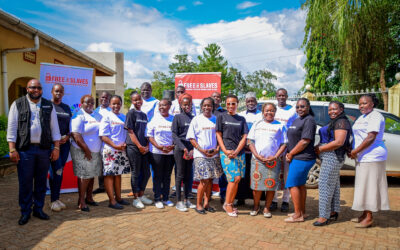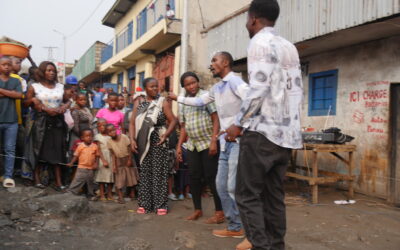Free the Slaves, along with ten other NGOs—including Amnesty International, Human Rights Watch, the Enough Project, and our ATEST partner World Vision—sent a letter this week to Secretary of State Hillary Clinton urging immediate implementation of the conflict minerals law (PDF).
Read Free the Slaves’ investigation: Several types of slavery linked to Congo’s mining industry
Minerals from eastern Democratic Republic of the Congo turn up in cell phones, lap tops, light bulbs, batteries and other everyday electronics. Through these products, American consumers unknowingly buy into slavery. It is imperative that supply chains become transparent, so we can make informed purchases—and stop unwittingly supporting exploitative and slave labor. We have called this new law an important first step in eradicating slave labor in the mining industry of the Democratic Republic of Congo, because it requires companies that deal in these minerals to disclose how they monitor their supply chains.
It is imperative that there is no delay in the implementation of the conflict minerals law. There is no time to spare for the people in eastern Congo. (Please sign our petition urging the SEC to not overlook slavery in the implementation of the conflict minerals law.)
Here is our letter to Secretary Clinton in full, right after the jump! (Download the PDF of the letter here)
Dear Secretary Clinton:
We are writing to urge the State Department to fully support the timely and effective implementation of Section 1502 of the Dodd-Frank Wall Street Reform and Consumer Protection Act to help break the link between minerals and violence in eastern Democratic Republic of the Congo.
We strongly oppose a delay or a phase in of the reporting requirements of the legislation. Given the urgency of the humanitarian situation in eastern Congo and the key role of the minerals trade in fueling violent conflict and human rights abuses, companies should not be granted delays to fully implement the reporting required by the law. Delays in implementation will seriously undermine the aim of the provision to reduce violence on the ground as quickly as possible and will send the wrong message to armed commanders in Congo and companies about the importance of this provision. With firm deadlines, companies and governments will be ready in time for the legislation, but those traders and governments unwilling to act on this issue will always seek delays.
You have been a strong voice against the violence in the Congo, especially the violence against women. Shortly after this provision was passed into law, you spoke out against the trade in conflict minerals that has funded a cycle of conflict there that has left more than 5 million people dead since 1998, displaced countless more and spawned an epidemic of sexual and gender-based violence.
As you know, rebel groups and the Congolese national army continue to fight over and illegally profit from minerals in eastern Congo, including by extorting illegal taxes at mine sites and along mineral transportation routes. These armed groups, which have committed mass rape, murder and other atrocities against the men, women and children who live in the region, are making tens of millions of dollars per year illegally from the trade in Congo’s minerals. The UN Group of Experts reported in November 2010 that the role of “criminal networks within the Congolese army” in the natural resource trade is an “important cause of insecurity and conflict” in eastern Congo. In investigating and reporting on the mass rapes of over 300 civilians in August 2010, the UN Joint Human Rights Office in the DRC emphasized the link between the violence and competition over mineral resources in North Kivu province.
Section 1502, the conflict minerals provision, represents a crucial step towards bringing about the greater transparency and accountability in minerals supply chains that is urgently needed to combat the trade in conflict minerals. The State Department has an important role to play in ensuring the effective implementation of this provision.The provision requires that companies sourcing minerals from DRC or neighboring countries disclose to the SEC the due diligence they have conducted on their mineral supply. The State Department should support the development of strong regulations by the SEC, including a clearly defined due diligence framework. The guidance for companies that the State Department is developing should serve to underpin the SEC regulations by strengthening companies’ ability to carry out effective due diligence and verifying the chain of custody of the conflict minerals that they use.
We urge the State Department to speed development of the strategy required by the Congo conflict minerals provision to address the linkages between human rights abuses, armed groups, mining of conflict minerals and commercial products in the Congo and to make it as strong and comprehensive as possible. The plan to promote peace and security in the Congo and the plan to provide guidance to companies to help them to ensure that the production of the goods they sell does not directly or indirectly finance armed conflict or result in labor or human rights violations are particularly important. Finally, the penalties designed by the State Department should serve as an added incentive for companies to comply with this provision and to adopt robust due diligence measures to avoid sourcing from armed groups in eastern Congo.
We urge you to take strong actions over the coming months to fully support implementation of the conflict minerals provision to help end the human suffering in Congo. If these measures are properly implemented, this provision will help cut off financing to the warring parties in eastern Congo and therefore reduce violence on the ground in eastern Congo.


